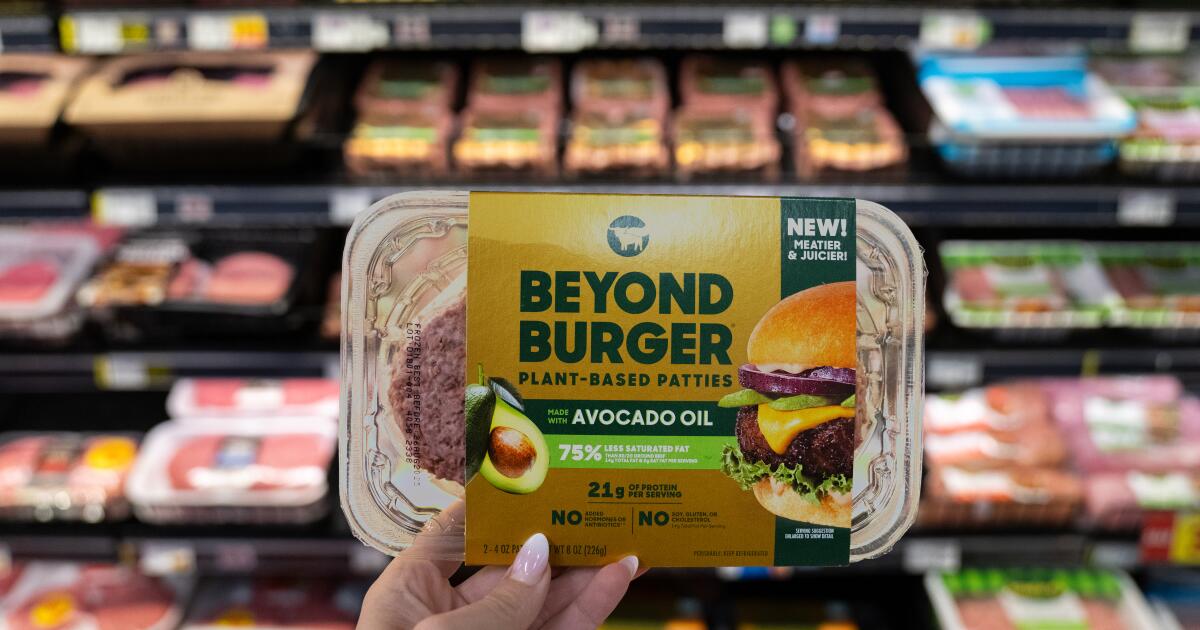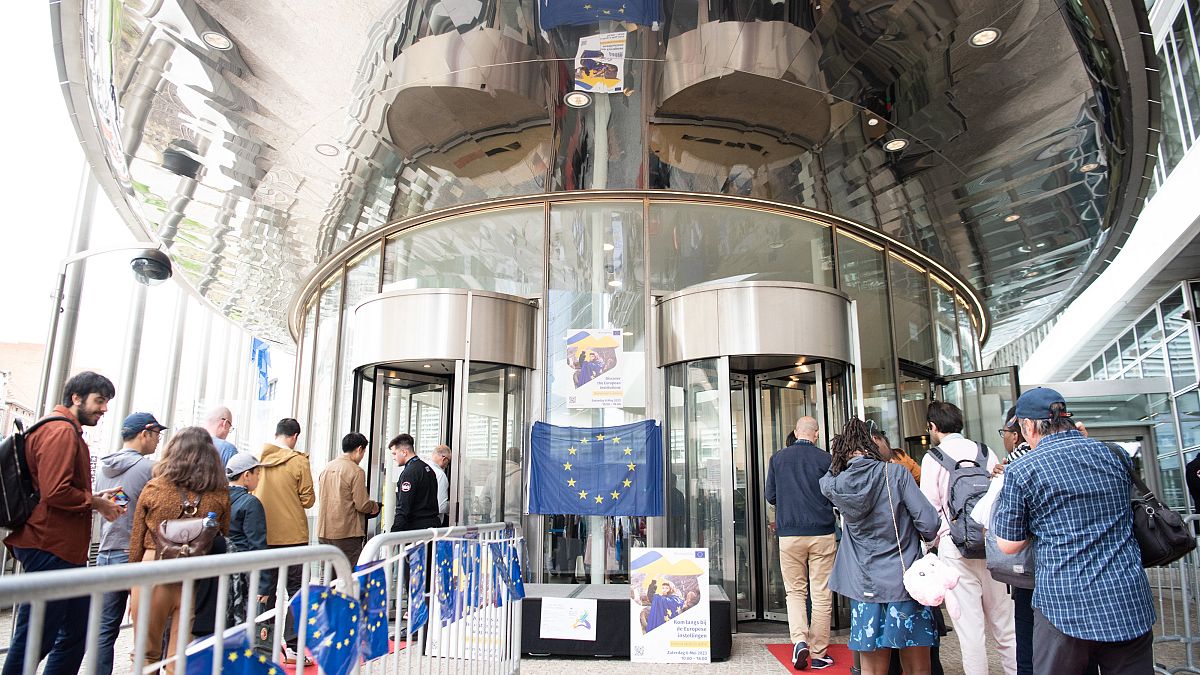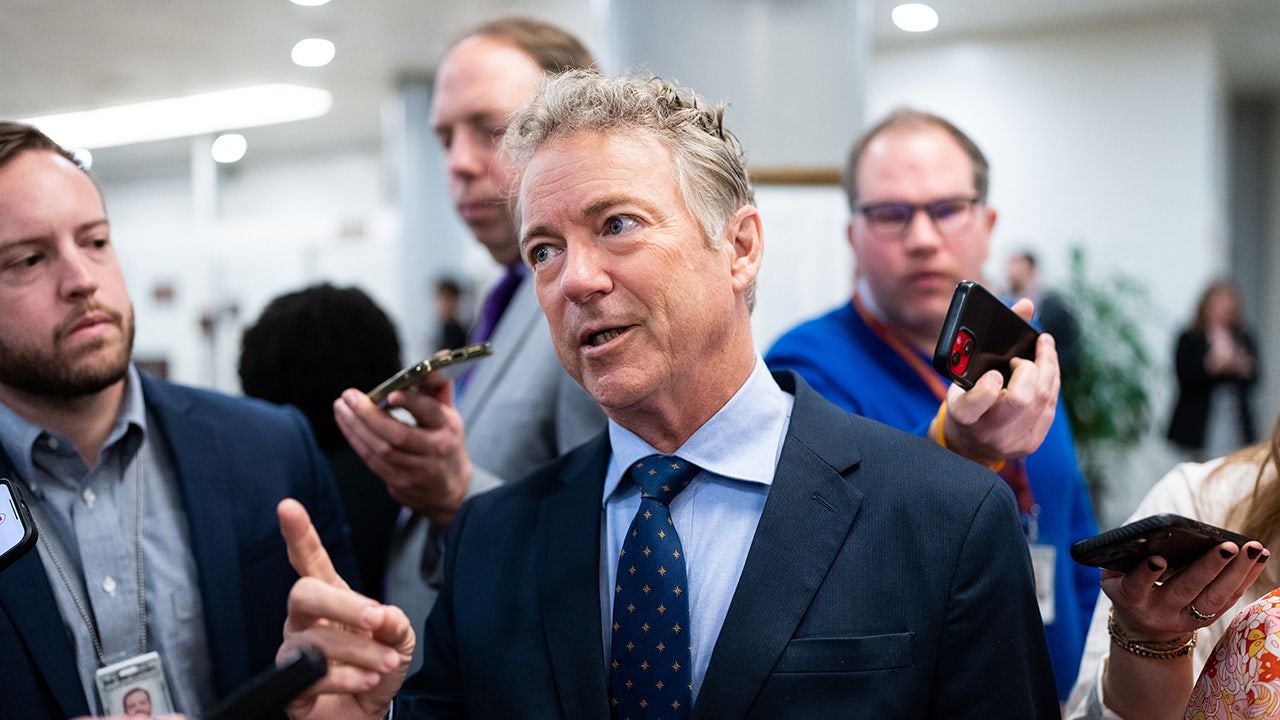Business
Hyundai and LG Plan $4.3 Billion Battery Plant in Georgia

Hyundai Motor Group and LG Energy Solutions announced plans on Thursday to build a $4.3 billion electric vehicle battery plant in Georgia, the latest clean energy facility to come to the state.
The project is expected to bring 3,000 new jobs to southeast Georgia by the end of 2025. It is the second battery manufacturing plant that Hyundai is developing in the state, which has used incentives in the Inflation Reduction Act to open new facilities. Hyundai announced in December that it had partnered with SK On, a Korean electric vehicle battery developer, to build a plant in Bartow County.
“Hyundai Motor Group is focusing on its electrification efforts to secure a leadership position in the global auto industry,” Jaehoon Chang, president and chief executive of Hyundai Motor Company, said in a statement.
The facility is planned for Bryan County, Ga., near the Hyundai Motor Group Metaplant America, which is under construction, the company said. The Metaplant facility will produce Hyundai, Genesis and Kia electric vehicles.
Sen. Jon Ossoff, a Democrat, said in an interview that incentives for clean energy manufacturing in the Inflation Reduction Act made the plant possible.
“This is yet another huge win for Georgia,” he said.
In April, Mr. Ossoff led a trade mission to South Korea, where he met with senior executives from both companies.
The announcement follows a decision in January by Hanwha QCells to tap the federal climate and tax measure to expand its operations with a $2.5 billion facility in Georgia that will produce solar panels and their components.

Business
State audit finds major backlog of wage theft claims in California

Claims of wage theft filed by California workers are routinely left in limbo for years by state investigators who are facing a massive backlog of cases, according to a recent audit of the California Labor Commissioner’s office.
As a result of the sluggish pace, workers are left waiting years to receive money they may be owed, the audit found.
When claims are eventually investigated, the Labor Commissioner’s Office often does not recover wages. The audit found that in cases where workers requested help recovering their wages, they received the full amount owed to them only 12% of the time.
The backlog of unresolved cases has more than doubled in the last five years, from 22,000 claims in fiscal year 2017-18 to 47,000 in fiscal year 2022-23, the audit found.
The Labor Commissioner would need “hundreds of additional positions under its existing process to resolve the backlog,” California State Auditor Grant Parks wrote in a letter accompanying the audit to Gov. Gavin Newsom and state lawmakers Wednesday.
Wage theft occurs when employers fail to pay minimum wage or overtime rates or force workers to forgo legally required break times.
State law requires that a decision be made on a wage claim within 135 days from when it was first filed. But the Labor Commissioner’s office often takes two years or longer to process wage claims — more than six times longer than the law allows, the audit found.
Some 2,800 claims involving upwards of $63.9 million in unpaid wages have been open for five years or longer, according to the audit.
“Workers have virtually no recourse because it takes so long. We need emergency hiring of these positions. We need the state to deal with it,” Lorena Gonzalez, head of the California Labor Federation, said of the audit’s findings.
Gonzalez said the audit underscored a problem that labor advocates and others have pointed out for years. She criticized the state for failing to act with urgency to better protect workers vulnerable to exploitation, especially low-wage laborers.
“Where is the outrage? How many hearings have [lawmakers] had on retail theft, on crime? Well this is a crime, and it happens every day to working people.”
The Los Angeles, Oakland, and Long Beach field offices of the labor commissioner have among the biggest backlogs of claims and on average take the longest to close wage theft investigations, according to the audit.
A slow hiring process and low salaries that make it difficult for the agency to retain staff and fill positions have contributed to the high vacancy rates. Vacancy rates in field offices ran as high as 45% in Santa Ana, 44% in Sacramento, 38% in Oakland and 35% in Los Angeles and Long Beach as of June 2023.
But even if all vacant positions were filled, the labor commissioner would be short of the manpower needed to address the backlogs and process claims in the time frame required by law, the audit found. The labor commissioner has about 315 positions, about a third of which are vacant. But it needs 892 full-time positions, nearly three times as many, the audit said.
The audit found that poor technological infrastructure that has led to inaccuracies, and spotty data in the agency’s case management system has also made it difficult for the office to track claims.
California’s Department of Industrial Relations, which includes the Labor Commissioner’s Office, said it “is committed to finding ways to continually improve its programs and ensure that it meets its mission to protect and improve the health, safety and economic well-being of over 18 million wage earners.”
The department’s director, Katrina S. Hagen. said the division is working on improvements to the case management system and conducting a study of staff salaries to improve retention.
And last week, the Department of Industrial Relations announced $8.5 million in grants to 17 local prosecutors to run wage theft enforcement programs locally and bring criminal charges against problem employers.
Other California agencies responsible for enforcing labor laws have also been beset by staffing problems and claims of ineffectiveness. The Division of Occupational Safety and Health, known as Cal/OSHA, is grappling with a 38% job vacancy rate and faced sharp criticism at a February hearing of the Assembly Committee on Labor and Employment, where farmworkers testified that they’d been exposed to extreme heat and pesticides on the job.
The release of the audit comes as lawmakers and lobbyists are in negotiations over the future of California law that labor leaders say is a crucial alternative for dealing with wage theft and other workplace abuses.
The law, known as the Private Attorneys General Act, or PAGA, gives workers the right to file lawsuits against their employers over back wages and to seek civil penalties on behalf of themselves and other employees.
A business-backed initiative seeking to repeal the law will appear on the ballot in November, unless a deal is reached in the next few weeks.
The California Labor Federation and other labor groups are backing Assembly Bill 2288, introduced by Ash Kalra (D-San José), that aims to give PAGA more teeth by allowing courts to order employers to correct violations. Advocates say it will help ensure bad behavior by employers is halted, rather than simply awarding a settlement and allowing a company to go back to problematic practices.
Business
How Beyond Meat is trying to get its sizzle back

When Beyond Meat went public in 2019 in an initial stock offering that saw its shares nearly triple in price, it seemed to confirm that plant-based meats had arrived.
The food technology, capable of converting beans into something approaching meat in taste and appearance, caught the imagination of the public, restaurant chefs and media alike. Deals with fast-food chains and soaring sales during the pandemic seemed to only underscore how a once-fringe idea had gone mainstream.
But those heady days are over as industry sales have fallen amid concerns about the healthfulness of plant-based meat, a sticker price that remains higher than a basic burger — and the fact that the product still only approximates the real thing.
“We thought we were just gonna go from our meteoric rise into the mainstream and not have to deal with this cycle that we’re in,” said Beyond Meat founder and Chief Executive Ethan Brown, in an interview at the company’s new El Segundo offices. “The trough has been a difficult place to be the last couple of years.”
Now the company is betting it can turn around its fortunes with a newly formulated burger that it says not only is a big leap in taste, but has won the seals of approval of leading health and nutrition organizations.
“I give credit where it’s due. I think they’ve made some clear improvements in the ingredients and nutritional profile, so there’s clear progress there,” said John Baumgartner, an analyst at Mizuho Securities, who has had an “underweight” rating on Beyond’s stock.
As the first plant-based meat company to go public, Beyond has been an industry bellwether, with its travails documented in the media and regulatory filings.
Though the company’s growing lineup, including breakfast patties, beef tips and chicken tenders, are sold at 130,000 retail and food service outlets worldwide, some of its heralded fast-food deals with companies such as Carl’s Jr., Dunkin Donuts and KFC have either petered out or not moved beyond test phases.
It’s also faced stiff competition from chief rival, Impossible Foods in Redwood City, Calif., which has made fast sales gains at supermarkets and is available as a Whopper at Burger King.
Beyond’s net revenue fell by more than 25% to $343 million in 2023 compared with 2021. Sales decreased another 18% in the first quarter of this year, with the company racking up $54 million in losses.
With numbers like that, investors have taken a beating. The stock is down more than 90% since its all-time highs topping $200 in 2019. Shares closed Thursday at $7.35.
The sales decline has taken a sharp financial toll, with the company’s cash position falling from $733 million in 2021 to $190 million last year.
That prompted TD Cowen in a May earnings note to say the company may run out of money if it can’t stem the bleeding or raise funds — an outcome Brown dismisses. In Beyond’s quarterly conference call, the chief financial officer talked about raising funds through either debt or equity.
“It’s challenging,” Baumgartner said. “The category is still trying to find its way.”
Sales of plant-based meats and seafood were down 12% in 2023 to $1.2 billion, with unit sales falling even more by 19%, according to the Good Food Institute.
While the novelty of plant-based meat has worn off, what has stuck are persistent cries of “fake” or “faux” meat by critics — a diverse group that includes nutritionists, the entrenched meat industry and whole food absolutists who proselytize eating foods closer to nature.
The meat industry has for years helped bankroll a campaign highlighting the highly processed nature of Beyond’s and other makers’ plant-based beef products. “Fake meat, real chemicals,” is one such campaign sponsored by the Center for Consumer Freedom, a business backed nonprofit.
“Our campaign simply informed the public about what’s in fake meat. Consumers have seen past the marketing spin and realized that these products are just ultraprocessed goop that costs more and isn’t healthier than real meat,” said James Bowers, executive director of the center, in an emailed statement to The Times.
Beyond has tried to stress that all its ingredients come from plant-based sources, but there are many nutritionists on the web who also have voiced concerns about the fat and sodium content of the older burgers — and an industrial process that creates a product Grandma would not have stocked in her kitchen.
Baumgartner thinks those voices have resonated more than any industry-backed campaign.
Brown maintains entrenched food lobbies are the real culprit, while also acknowledging their effectiveness.
“So if you look at 2020, 50% or more of consumers thought that plant-based meat was healthy. That dropped to 38% in 2022. And it’s probably lower today,” he told The Times.
Beyond is banking its turnaround on the fourth iteration of its burger meat, which began wide distribution in May. Beyond has switched from canola and coconut oils to avocado oil, reducing saturated fat by 60% to 2 grams per serving, while cutting sodium by 20%.
Brown said the new recipe, which includes peas, red lentils, faba beans and brown rice, was developed through consultation with the company’s scientific and nutritional advisors, as well as leading health groups.
The new burger has earned key endorsements by the American Diabetes Assn. and Good Housekeeping that Beyond plans to slap on its labeling. The American Heart Assn. is including the product in its heart-healthy recipe collection.
Beyond also says its major recipe change has resulted in its “meatiest, juiciest” burger ever, citing early taste tests to back up its claim. That’s an important consideration, given the competition.
Impossible Foods, founded by a Stanford University biochemist, makes soy-based burgers, using a bean that has been manipulated by the food industry for decades to make an assortment of products. The company’s burgers also contain a genetically modified plant-based version of heme, an iron-containing molecule that is a component of beef.
In online taste tests, Impossible often beat Beyond’s burgers, which are based on peas. Brown chose peas due to alleged health concerns over soy-based products, the vast majority of which are genetically modified.
Impossible’s burgers became the darlings of foodies and chefs at high-end restaurants prior to pandemic, and since then, like Beyond, the company has continued to improve them, with multiple versions now available.
While both companies laid off workers amid the industry’s downturn, Impossible has seen strong retail sales and claims it is “the fastest growing meat from plants brand” in the country. It’s also managed to make its Impossible Whopper stick on Burger King’s menus. As a privately held company, it does not release detailed financial information.
Overseas, Beyond, which can market its product as non-GMO, sells in far more markets, and, though McDonald’s decided against selling a Beyond-based burger in the United States, it does so in Europe.
Despite how much is riding on its newest burger, Beyond has raised the retail prices, partially to offset the higher costs of the ingredients, but also to improve its margins.
Baumgartner questioned the move, especially after Beyond had cut the price of its prior burger.
“I think what complicates the matter now is in 2023, when you had inflation and you were seeing food prices going up, Beyond cut their prices. Now, as prices have generally stabilized, Beyond Meat is raising prices.”
Brown dismissed the concerns, saying the company needs to raise its margins after the prior price cut destroyed them, while doing nothing to improve sales.
While Brown’s goal has been to achieve pricing parity with animal meat, he said Beyond’s customers — health conscious and concerned about the environmental issues surrounding the beef industry — have been found to be “price insensitive.”
The fundamental challenge for Beyond, he said, is turning around the wider perception that its products are not good for you.
“Once that narrative became complicated for people because of misinformation or whatever, it became harder to grow the business. We have addressed that thoroughly in this product,” he said.
Business
AMC Theatres CEO says 'Renaissance' leak nearly tanked Beyoncé deal

The rollout for Beyoncé’s “Renaissance” movie was not so flawless, according the head of AMC Theatres, which distributed the concert film.
Adam Aron, chief executive of the nation’s largest theater chain, told Variety in an interview published last week that the company’s distribution deal with the musician nearly fell through after news of the project leaked.
“Beyoncé was seriously thinking about not doing the movie at all because the secret was blown,” Aron said.
The revelation came several months after “Renaissance: A Film by Beyoncé” opened in wide release on the heels of Taylor Swift and AMC’s wildly successful “Eras Tour” concert film.
According to Aron, AMC went to great lengths to keep the “Eras Tour” movie under wraps — a clandestine move that gave the company a ticket sales advantage and reportedly irked other theater chains.
In an effort to smooth things over with industry peers, AMC decided to handle the “Renaissance” launch a little differently — giving fellow exhibitors a quiet, early heads-up about the picture to level the playing field.
“At least half a dozen movie circuits leaked the news,” Aron told Variety. “So, they didn’t keep their word.”
Representatives for AMC and Beyoncé did not immediately respond to The Times’ requests for comment.
“Renaissance: A Film by Beyoncé” — which features dazzling footage from the singer’s blockbuster world tour — hit theaters Dec. 1 and grossed $44 million at the global box office. It was only the second title released by AMC, which previously operated exclusively as an exhibitor.
Following the success of “Taylor Swift: The Eras Tour” — which pulled in $261.7 million worldwide — AMC plans to distribute “two to three” concert films per year, Aron told Variety. Theater owners are increasingly turning to alternative programming, such as live music and sports, in hopes of increasing attendance in the wake of the COVID-19 shutdown.
-

 World1 week ago
World1 week ago€440k frozen in Italy over suspect scam by fake farmers
-

 News1 week ago
News1 week agoBuy-now, pay-later returns and disputes are about to get federal oversight
-

 World1 week ago
World1 week agoOmbudsman probes Commission's senior staff 'revolving door'
-

 News1 week ago
News1 week agoRead the I.C.J. Ruling on Israel’s Rafah Offensive
-

 News1 week ago
News1 week agoVideo: Protesters Take Over U.C.L.A. Building
-
/cdn.vox-cdn.com/uploads/chorus_asset/file/25459708/Screenshot_2024_05_22_at_9.08.56_AM.png)
/cdn.vox-cdn.com/uploads/chorus_asset/file/25459708/Screenshot_2024_05_22_at_9.08.56_AM.png) Technology1 week ago
Technology1 week agoSuper Mario Maker 64 exists, thanks to a new ROM hack
-

 World1 week ago
World1 week agoHoping to pave pathway to peace, Norway to recognise Palestinian statehood
-

 Politics1 week ago
Politics1 week agoFauci adviser's alleged destruction of COVID origin docs must be probed by AG: Rand Paul




















